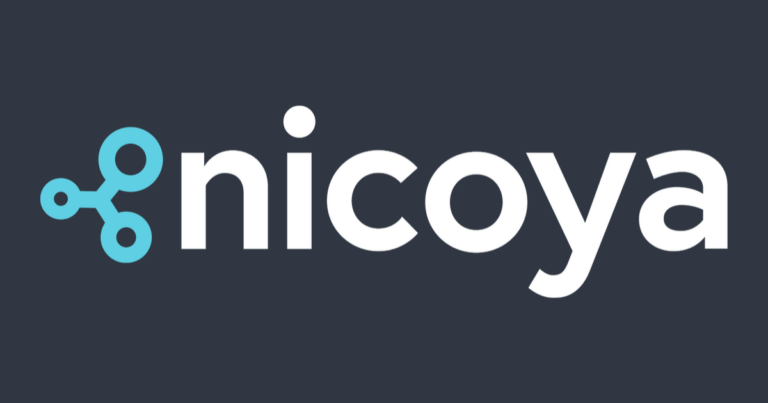Genethon, a global leader in gene therapy research for rare genetic diseases, and Hansa Biopharma, a Sweden-based biotechnology company pioneering IgG-cleaving enzyme technology, have announced a major milestone in the field of gene therapy. A patient suffering from Crigler–Najjar syndrome, a rare inherited liver disorder, and previously ineligible for gene therapy due to immunity to the AAV vector, has been successfully treated with Genethon’s investigational gene therapy GNT0003. This success followed the administration of imlifidase, an enzyme developed by Hansa Biopharma that temporarily reduces IgG antibodies responsible for neutralizing AAVs, thereby allowing gene therapy to proceed effectively.
This achievement, demonstrated in the ongoing GNT-018-IDES clinical trial, marks a significant step forward in enabling treatment for patients with natural immunity to AAVs (adeno-associated viruses)—a group previously excluded from receiving AAV-based gene therapies.
Overcoming the AAV Immunity Barrier
Gene therapy offers transformative potential by delivering functional copies of defective genes into patients’ cells using viral vectors. Among these, AAVs are widely used due to their safety and efficiency in targeting tissues such as the liver, muscles, and eyes. However, exposure to natural AAVs earlier in life can lead to the development of neutralizing immunoglobulin G (IgG) antibodies. These antibodies recognize and block AAV vectors, rendering standard AAV-based therapies ineffective.
Studies estimate that approximately one in three people carry pre-existing immunity to AAVs, posing a major barrier to gene therapy eligibility. To address this challenge, Genethon researchers explored the use of imlifidase—a unique bacterial enzyme that cleaves IgG antibodies—to transiently suppress this immune barrier. Developed by Hansa Biopharma, imlifidase acts rapidly, lowering IgG levels and allowing AAV vectors to deliver therapeutic genes safely.
A Milestone Case in Crigler–Najjar Syndrome
At the 2025 European Society of Gene & Cell Therapy (ESGCT) Congress, Dr. Jérémy Do Cao of Béclère Hospital (AP-HP, France) presented compelling data from the GNT-018-IDES study. The trial investigated whether pre-treatment with imlifidase could enable safe and effective delivery of GNT0003—Genethon’s AAV8-based gene therapy candidate—in a patient naturally immune to AAV8.
Crigler–Najjar syndrome is a rare and severe genetic liver disease caused by mutations in the UGT1A1 gene, leading to dangerous accumulations of bilirubin in the blood. Patients must often undergo hours of phototherapy each day to prevent neurological damage or death, and liver transplantation remains the only curative option.
In this pioneering case, imlifidase was administered before GNT0003, successfully cleaving and neutralizing the patient’s anti-AAV antibodies. This allowed for the safe infusion of the gene therapy. According to trial data, the treatment was well-tolerated, with no severe adverse effects attributed to either imlifidase or GNT0003.
Promising Clinical Outcomes
The results were encouraging. Following treatment, the patient showed a marked reduction in bilirubin levels, a key indicator of disease severity. Most importantly, the patient was able to discontinue daily phototherapy—a life-changing milestone—just sixteen weeks after receiving the gene therapy. This improvement, sustained over the monitored period, suggests meaningful restoration of liver function.
While longer-term follow-up and additional data are needed to confirm the durability of these effects, the initial findings represent a critical proof-of-concept for overcoming AAV immunity through temporary IgG suppression.
Expanding Access to Gene Therapy
This breakthrough represents the first successful administration of gene therapy in a Crigler–Najjar patient with pre-existing AAV antibodies. If validated in further studies, this strategy could extend the reach of AAV-based gene therapies to a broader patient population across many genetic diseases. The approach could redefine eligibility for clinical trials, giving hope to those previously excluded due to immune barriers.
Dr. Giuseppe Ronzitti, Head of the Immunology and Liver Disease Laboratory and Director of Scientific Forecasting at Genethon, reflected on the achievement:
“It’s incredible to witness the clinical translation of a project that began in our laboratory,” he said. “This success reflects the dedication of many teams across Genethon working toward a shared vision. The preliminary data indicate that we still have much to learn about immune responses to AAV vectors—but these findings show that a viable solution may already be within reach.”
A Step Toward Broader Therapeutic Horizons
The combination of Genethon’s gene therapy innovation with Hansa Biopharma’s immune-modulating enzyme represents a powerful synergy. By temporarily neutralizing antibodies that block AAV vectors, imlifidase enables effective gene transfer in previously resistant patients.
This collaboration demonstrates the value of cross-disciplinary partnerships in advancing gene therapy’s frontiers. Beyond Crigler–Najjar syndrome, the same strategy could potentially be applied to other AAV-based gene therapies in neuromuscular, metabolic, and ocular disorders, widening therapeutic access and bringing new hope to thousands of patients worldwide.
At its core, this breakthrough underscores a profound message: immune barriers that once seemed insurmountable can now be managed, expanding the promise of gene therapy for all.
About imlifidase
Imlifidase is a unique antibody-cleaving enzyme, originating from Streptococcus pyogenes, that specifically targets IgG and inhibits the IgG-mediated immune response. (6) It has a rapid onset of action, cleaving IgG antibodies and inhibiting their activity within hours of administration. Imlifidase has conditional marketing approval in EU, Norway, Iceland, Lichtenstein and the UK and is marketed under the trade name IDEFIRIX® for the desensitization treatment of highly sensitized adult kidney transplant patients with a positive crossmatch against an available deceased donor. (6) Is also approved in Switzerland and Australia.
About GNT003
The drug candidate GNT-0003, developed by Genethon to treat Crigler-Najjar syndrome, is currently being evaluated in a trial (GNT-012-CRIG) conducted in France, the Netherlands, and Italy in patients with no pre-existing immunity to AAV, with encouraging results.
About Crigler-Najjar syndrome
Crigler-Najjar syndrome is a rare genetic liver disease characterized by abnormally high levels of bilirubin in the blood (hyperbilirubinemia), which leads to irreversible neurological damage manifested as muscle weakness, lethargy, deafness, mental retardation, and eye movement paralysis. This accumulation of bilirubin is caused by a deficiency of the UGT1A1enzyme, responsible for transforming bilirubin into a substance that can be eliminated by the body. It can result in significant neurological damage and death if not treated quickly. At present, patients must undergo prolonged daily phototherapy (often more than 10 hours a day, sometimes up to 15 hours a day) to keep their bilirubin levels below the toxicity threshold. Crigler-Najjar syndrome is an ultra-rare disease affecting less than one in one million people per year. Liver transplantation remains the only definitive cure to date, but is associated with significant morbidity and mortality, as well as graft shortage



